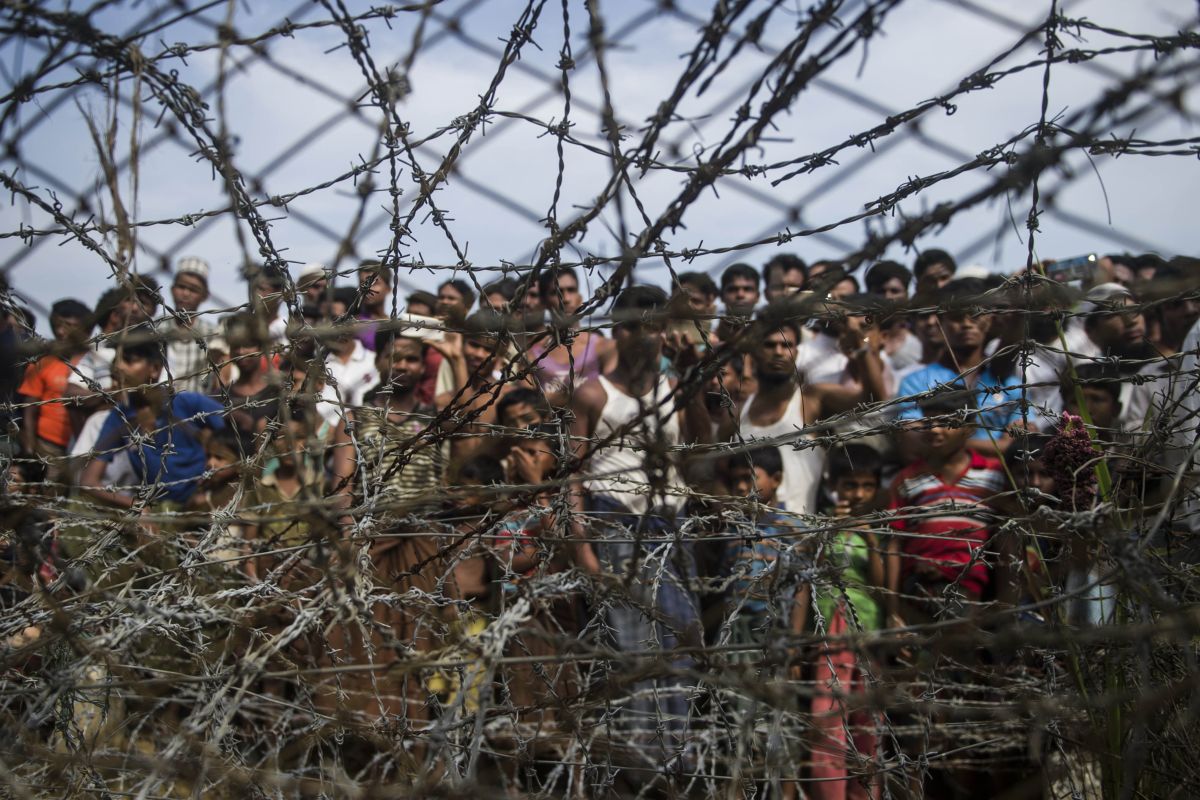Myanmar Fractures
Myanmar’s military junta, once feared as a monolithic force, is increasingly showing signs of internal decay.
Crucially, the military has been accused of war crimes.

Representative Photo
The gloom and doom shows no sign of abating. The chief significance of Monday’s report of the United Nations must be the well-grounded fear that no fewer than 600,000 Rohingyas in Myanmar are ‘at serious risk of genocide’. The caveat serves to reinforce its earlier projection that the country bears witness to the “worst humanitarian crisis since World War II”. That report was crafted by the world body in 2017.
Tragically enough, between one report and another, there has been little or no change in ground reality, a testament to the fact that Aung San Suu Kyi has been thoroughly ineffectual as a democratic leader. In a damning indictment of the shambolic regime that she helms ~ though not as President ~ the UN’s final report is explicit on the point that Myanmar “continues to harbour genocidal intent and the Rohingyas remain under serious risk of genocide”. It would be no exaggeration to suggest that the democratic transition has miserably failed to alleviate the privation of the “nowhere men” in Rakhine, on the Bangladesh border, but whom the government in Dhaka will not accept.
Advertisement
The refusal flies in the face of a repatriation deal signed two years ago. The nub of the matter must be that vitually not a single refugee has returned till date. Over the past few years, they have been buffeted from shore to shore in search of a home ~ a journey without maps that has only deepened the misery. The UN fact-finding mission to Myanmar, set up by the Human Rights Council, has now called for the prosecution of the top Generals, including the army chief, Min Aung Hlaing. It has, in point of fact, ripped off the facade of democracy and Suu Kyi’s humanitarian intent ~ “Myanmar is denying wrongdoing, destroying evidence, refusing to conduct effective investigations and clearing, razing, confiscating and building on land from which it displaced the Rohingyas”.
Advertisement
It is a measure of the overwhelming humanitarian crisis that the UN team has urged the Security Council to refer Myanmar to the International Criminal Court (ICC) or to constitute a tribunal. The appeal recalls the tribunals that were set up in the case of former Yugoslavia and Rwanda. It is more than obvious that the crisis has exacerbated over the past two years, when the first report was advanced. Though the specifics are yet to be disclosed, it is cause for alarm that the UN delegation has a “confidential list” of over 100 names, including officials who are suspected of being involved in genocide, crimes against humanity and war crimes, in addition to the six generals who were named last year.
Crucially, the military has been accused of war crimes. It is as yet unclear whether Myanmar will return to a state of unsplendid isolation. The UN report has appealed to foreign governments and companies to sever business ties with the country. The economic blight could well be tantamount to sanctions.
Advertisement